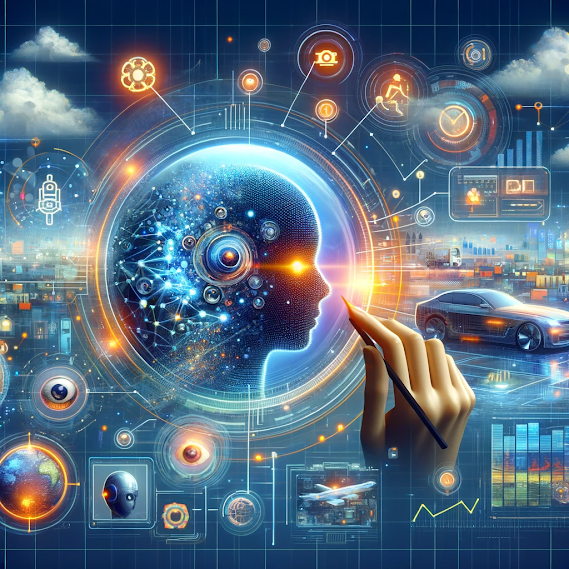AI in Mental Healthcare: A New Frontier in Treatment and Support
AI in Mental Healthcare: A New Frontier in Treatment and Support
The mental health crisis is one of the most pressing challenges of our time, impacting global productivity and individual wellbeing on an unprecedented scale. According to a report by The Lancet Global Health, anxiety and depression lead to a loss of about US$1 trillion in global productivity each year. This staggering figure is a wake-up call to the dire need for innovative solutions in mental healthcare, especially in the context of the rising number of mental health cases and a severe shortage of mental health professionals. The imbalance between the increasing demand for mental health services and the limited availability of care providers, further exacerbated by the #COVID-19 pandemic, has strained healthcare systems worldwide. In this scenario, Artificial Intelligence (AI) emerges as a beacon of hope, offering novel ways to enhance early detection, diagnosis, and treatment of mental health issues.
The Promise of AI in Mental Healthcare
AI's role in mental healthcare is multifaceted, ranging from providing support to enhancing treatment efficacy. Here are some of the ways AI is making a difference:
AI Therapists and Chatbots: Tools like Woebot and Tess are revolutionizing the way emotional support is provided. These #AIchatbots offer 24/7 assistance, adapt to user interactions, and help manage symptoms. They can facilitate referrals to human professionals when necessary, bridging the gap in care accessibility.
Wearable Monitoring for Mental Health: Wearables like #Biobeat are on the forefront of monitoring mental health. These devices provide real-time tracking of both physical and mental health parameters, aiding in early intervention and continuous monitoring.
Diagnostic and Predictive Analysis: AI has the capability to predict and classify mental health issues more efficiently by analyzing vast amounts of data from various sources. This ability enhances the accuracy of diagnoses and helps in identifying at-risk individuals.
Enhancing Patient Compliance: #AIsystems are adept at predicting issues related to treatment adherence. They can send reminders or alerts to healthcare providers, ensuring that patients stay on track with their treatment plans.
Personalized Treatment Plans: AI's role in monitoring treatment responses is crucial. Projects like UC Davis's schizophrenia research demonstrate AI's potential in developing customized care strategies, tailoring treatment to individual patient needs.
The Challenges of AI Integration in Mental Healthcare
Despite its potential, the integration of #AI into mental healthcare is not without challenges:
Privacy Concerns: The use of AI in mental healthcare raises significant privacy concerns. The handling and storage of sensitive mental health data require robust security measures to protect patient confidentiality.
Reduced Human Interaction: There's a risk that AI might lead to a reduction in human interaction in therapy, which is a critical component of mental health treatment. The therapeutic relationship between a patient and a therapist is complex and nuanced, something that AI cannot fully replicate.
Algorithmic Biases: AI systems are only as unbiased as the data they are trained on. There's a risk of algorithmic biases creeping in, which could lead to unequal or inappropriate care for certain groups of patients.
Balancing AI and Human Care in Mental Healthcare
The future of mental healthcare with AI looks promising, but it requires a balanced approach. AI should be seen as a tool that supports, not replaces, human care. This involves:
Human Oversight: Ensuring that #AI tools in mental healthcare are used under the guidance and oversight of trained mental health professionals.
Continuous Evaluation: Ongoing assessment of AI's impact and effectiveness in mental healthcare is crucial. This includes monitoring the outcomes of AI-assisted treatments and adjusting strategies as needed.
Ethical Considerations: Addressing ethical concerns, such as consent, privacy, and data security, is essential in the application of #AI in mental healthcare.
AI holds the potential to revolutionize mental healthcare, offering innovative solutions to enhance treatment, support early detection, and ensure continuous patient monitoring. As we navigate this new frontier, the focus must be on leveraging AI's capabilities while addressing its limitations and risks. The goal is not to replace human care but to complement it, ensuring that patients receive the best possible support and treatment. With careful implementation and ongoing evaluation, AI can play a pivotal role in addressing the global mental health crisis, paving the way for a more accessible, efficient, and effective mental healthcare system.
Read more articles about AI tools and applications for business here.


.jpeg)


Comments
Post a Comment